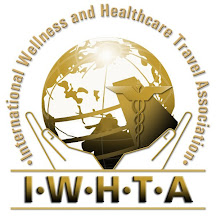In this issue we are going to feature our discussion with Ms Elaine Cheong, CEO, Sime Darby Healthcare Group, Malaysia. She talks about Sime Darby, quality of care and support of Malaysia government. She revels that there are more number of digestive related,gynaecological disorder and chemotherapy patients then orthopedic and other widely published trends.
Ms Elaine Cheong, (CEO of Sime Darby Group of Hospitals)
CEO of Sime Darby Healthcare Group, Malaysia. Ms Cheong qualified as an accountant and is a member of the Australia Society of Certified Public Accountants (CPA Australia) and the Malaysian Institute of Accountants (MIA) respectively. Ms Cheong has been with Sime Darby Healthcare for the past 24 years. During this time, she has spear-headed several cost-containment projects in the hospital and implemented many initiatives leading to enhancement of shareholders' value.
Please tell us about Sime Darby Medical Center.
As Malaysia's multiple award-winning medical centre for quality excellence and also as a JCI-accredited 393-bed tertiary care private hospital, Sime Darby Medical Centre Subang Jaya is reputed for its medical expertise and cutting-edge medical technology. For the last 24 years, we have been at the forefront of the private medical facilities sector in Malaysia, and hopefully by 2015, we would have gained an even stronger foothold in the medical travel industry in Asia.
Why Malaysia is preferred Medical Tourism destination?
Foreign patients are starting to see that Malaysia offers a unique combination of high quality healthcare & Malaysian hospitality. The level of medicine and technology available here is on par with the developed world and this region. At the same time patients can enjoy the Malaysian warmth and hospitality that is attracting millions of tourists to our country every year. We are also politically stable. English is widely spoken here and our melting-pot of cultures cater to a diverse group of people from all over the world. All this comes at very competitive rates, making Malaysia, the value-for-money choice of the region and globally.
What is the major area of treatment used by international traveler at Sime Darby Medical Center? Tell us about some of the unique features of Sime Darby?
From our 2009 statistics, the biggest group of medical travelers came for treatment of digestive-related illnesses; followed closely by those with gynaecological disorders. As we are reputed for cancer care, chemotherapy came in third. The rest of the cases were mainly for orthopaedic surgeries, as well as urological, ENT, neurological, respiratory and heart procedures.
The foreign patient growth in our hospital has uniquely been due to word-of-mouth recommendations or medical referrals. It helps that our doctors are multi-lingual too with many of them being key opinion leaders or peer-acknowledged experts in the country in their respective specialties. Foreign patients who choose to come to us also place great emphasis on our technological advances and capabilities, as that impacts their diagnosis findings and treatment outcomes. And acquiring the latest medical technology is one area we have frequently been ahead of the pack.
As a Medical Travel association we want to bring transparency in quality care data reporting and inform patients about quality of care in hospitals worldwide. What initiatives Sime Darby is taking to improve quality of care and to reduce infection rates?
Our mission is to deliver quality tertiary services and best care to our patients, in an environment that is conducive to innovation and continual improvement. Because a patient's welfare and safety are our priority, we have various processes and plans in place for this. We also use the 7 QC tools and have established a Quality Council to review status of action plans implemented to reduce and / or prevent medical/healthcare errors as well as to improve patient safety, quality and reduce risk. Standard precautions, personal protective equipment such as gowns, gloves, masks, hand hygiene, good isolation practices and participation in the Employee Health Program are used to prevent spread of infection. We have an Infection Control Committee which is chaired by a doctor that is responsible for the prevention and control of infection.
As testimony to the commitment of our initiatives, our hospital has received accreditation under Joint Commission International (JCI), Malaysian Hospital Accreditation Standards (2nd edition), ISO 9001:2000, Occupational Health & Safety OHSAS 18001:2007 and the Environmental Management System ISO 14001:2004. The hospital's main laboratory is also accredited to ISO 15189.
How supportive is Malaysian Government to Medical Travel industry? Can you discuss any initiatives by Malaysian Government to promote Medical Travel industry in Malaysia?
The Malaysian Government is very supportive in growing the medical travel industry sector. Recently announced initiatives by the Government to boost the industry include:-
Providing selected private hospitals with 100% tax exemption for qualifying capital expenditure incurred for 5 years for the construction of new hospitals or for expansion/modernization/refurbishment of existing hospitals and setting up of an International Patients Unit;
Reviewing existing advertising regulations and guidelines;
Double deduction incentive under the Income Tax Act 1967 for expenses incurred to obtain recognized accreditation for quality healthcare;
Issuance of permit to hospital vehicles to ferry patients and accompanying persons from and to airport/port and hospital/hotel of stay;
Approval to convert "Visa-On-Arrival" status for foreign patients entering Malaysia for medical treatment on emergency, to social visit pass upon recommendation of private hospitals registered under the Ministry of Health for promotion of healthcare travel;
Expedite approval of extension of stay for medical tourist at the state level; and
Encouraging more Malaysians or non-Malaysian medical specialists to return or come from abroad to serve in Malaysian hospitals, the specialist's non-Malaysian spouse who qualify as a professional as per the Malaysian Classification of Occupation, will automatically be offered an employment/professional pass, subject to registration with the relevant professional bodies where appropriate.
What is the most important factor to promote medical tourism?
To promote medical tourism, it is vital that international insurance plans provide for out-of-country coverage to enable these foreign patients to seek cross-border treatment

No comments:
Post a Comment